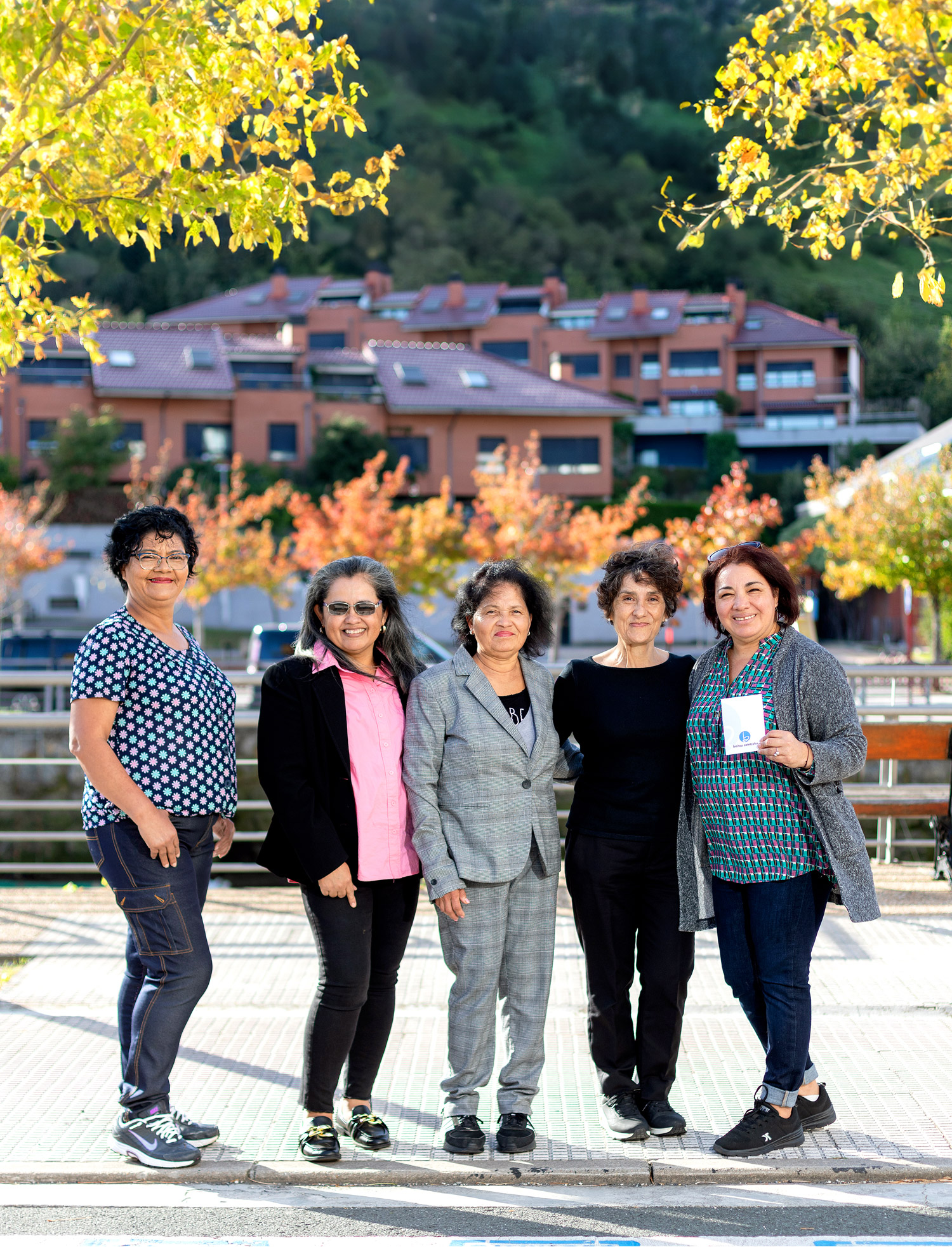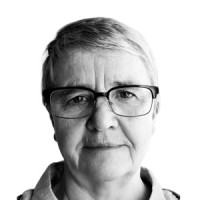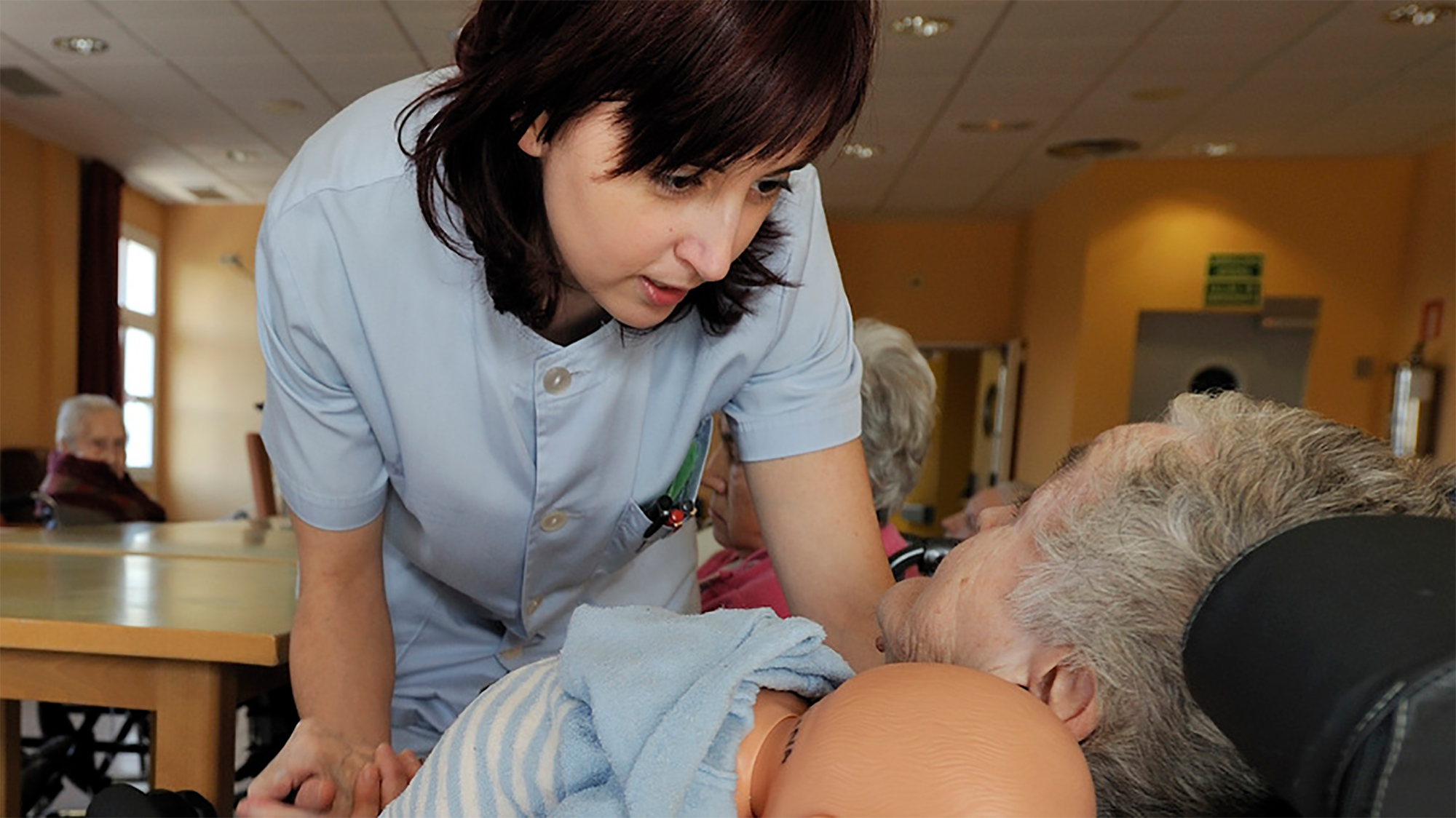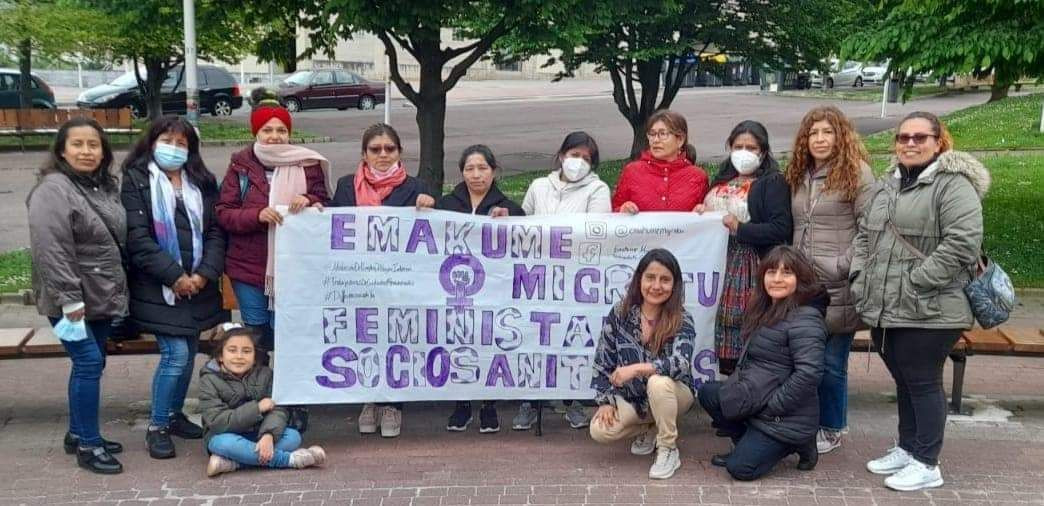"Surveillance is authoritarian if it is not selected, consensual and politically worked"
- Irati Mogollón (Lezo, 1991) works as a group of senior empowerment workshops and collective housing processes within the framework of the Zaindu Arquitectura project. The research process has been pioneering and has published Care Architectures with feminist urbanist Ana Fernández. Towards an activist aging (Care architectures. Towards activist aging (Icaria, 2019).

The idea of rethinking the model of residences over the past year has been reinforced. What is your reading? The
lack of care has unfortunately been put on the table of great misery, but it has been an opportunity or an opportunity to reflect on old age and that is wonderful. I believe that it has fallen into redundancy; that the debates are more public-private, ratios… Many other issues go unaddressed in relation to the sustainability of life or old age. For example, where are the sociocultural rights in the current residences?
The model of nursing homes has a lot to do with our imaginary of old age.
The perspective of fraternity is still present in our society. Old age has been stereotyped, so we're talking about the feminist empowerment of the elderly or activist aging, because we have to change the chip altogether. From a structure with its own conscience, we must move towards our sovereignty and political awareness, from the position of oneself. The point at which we will proudly live ageing has not yet been reached.
With increasingly individualized care tasks, as
our grandparents are a resource, we continue to leave conciliation in their hands. Another theme is the process of digitalization of the residences, the relationship with technology; the care crisis is socially solved with the people. Of course, technology is helpful, but we can't turn it into a solution or an alternative. How much we complicate a thing that is very simple…
.JPG)
Is there an idea that older people should be cared for without regard to their wishes?
Vigilance must be demystified. If it is not elected, consensual and politically worked, surveillance is authoritarian. Where is the right to privacy in this philosophy of monitoring his family for twenty-four hours? Or friendly approaches, which are often infantilizing proposals… As we age, we do not need friends, but dignified rights and the right to decide, we will not reproduce these patterns.
What is the strategy to build a new model?Need to create
other infrastructure for eviction of homes. We need a citizen strategy to integrate day-to-day care. Social relationships and rumors are often the only thing people need to feel mentally and emotionally active and audited, and they won't be given a caregiver, which is the health relationship they maintain, will not be your friend. In order to feel cared for,
a network between equals is needed, the socio-sanitary infrastructures guarantee the care, not the vigilancia.Es
important that each one decides how they want to live the vejez.Cada person has their own collective responsibility; we, for example, initiate the processes of empowerment of the elderly from the age of 55 and the people oppose it. I always tell them: “Do you want to do your homework right or do you prefer someone to decide on your future tomorrow?” Because that's the most common situation... Can you
work that prevention in a global way?
There are municipalities that have begun to develop these strategies: Lezo, Beasain… Strategies for the empowerment of the elderly are gradually being implemented. This process discusses what type of community or municipal equipment are necessary and reflects on other issues such as sexuality, economic sovereignty, care for grandchildren... Community housing is
an alternative to residences and the current life model, but to what extent can we collectively take care of ourselves?
When it comes to community, people place different expectations within the group, and then there are dislikes. To avoid this you have to decide what will be taken care of collectively and what not, what is community and what not… the negotiation is obligatoria.Los collective spaces must have a consensual collective life and for this you must be honest and transparent. Consensus must be reached, worked out and have a non-judicial and more open attitude.
It is therefore a long process, full of decisions and consensus.
The goal must be to live in diversity, but it is not easy at all. Community life must inevitably be linked to sustainable participation in time and life cycle, with minimum and maximum levels. One of the big keys is not to create models of collective balloons that swell very quickly and empty at once.
Is it optimistic in the medium term?I think there
are very strategic times, because the welfare state is changing; as for the rethinking of care and society, it is also changing the family model... There's a lot to do from the popular movement.
chose to study sociology by militancy to better understand society. However, the doctoral thesis has been the most important study. My thesis was about collective life support strategies. To meet the need to put the research into practice, we created the group Care Architectures, Ana Fernández and I, based on the experiences of collective obsolescence of European countries. After seven years, the issue has been very nice in our weight.”
Etxeko langile diren eta zaintza lanetan aritzen diren emakumeentzako etxea abian jarri dute Berriozarren. Zortzi pertsonendako lekua duen pisua gaitu dute zaintzan diharduten langileak 6-12 hilabetez espazio duin eta seguru batean bizi daitezen. SOS Arrazakeria Nafarroak eta... [+]
The legislature has ended and the PNV-PSE has not taken steps to change the custody model. The Lehendakari dismisses with a powerful campaign "Towards a Basque pact for care", denouncing "the political use and manipulation of care".
On 1 February, at the visit of the... [+]
I participated in the camp of small revolutions in July to reflect on care. Around the table we sat five women: Laura and Shirley of the Association of Household and Care Employees of Álava; Paula and Ainhoa of the group “Lives of all in the center”; and Kukuso, me.
As... [+]
Urkullu has on many occasions called for the public-private partnership that is at the heart of the capitalist system, but without any intention of explaining what that connection is today. When the public is complementary and dependent, it cannot oppress the interests of the... [+]





















